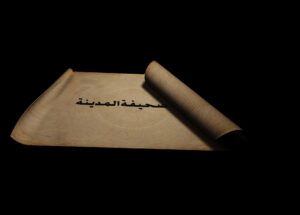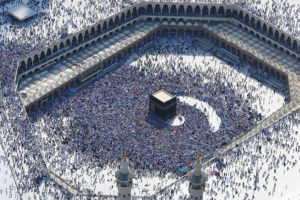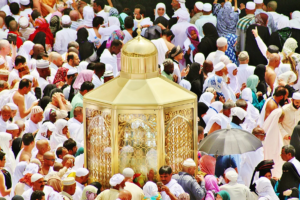











History remembers those who recognise truth before the world does. This is the story of two hearts—separated in time—whose acceptance of truth became eternal symbols of faith and certainty.

Far ahead of its time, the Covenant of Medina introduced practical methods for fostering pluralism among the diverse peoples under its jurisdiction—a key foundation for building a society based on freedom and mutual trust.

The Ahmadiyya Khalifa explains how justice is an essential prerequisite for Shariah law, and how imposing it forcefully goes against the principles of Islam.

Singling out religion—or worse—one particular religion as the sole driver of terrorism is only the result of prejudicial exaggeration of data and unfair distortion of facts.

Islam envisions the world in the form of a pluralistic ecosystem. Hence, enacting shariah law becomes impossible even in countries with Muslim majorities, let alone the multireligious nations and societies.

Islam has been largely misunderstood as an ideology endorsing terrorism. While the opponents of Islam try to assert this narrative, nothing can be further from the truth.

When all means to coping with a stressful situation is experimented in vain, a person resorts to ending his life as it seems to be the only way out of the agony. However, there is always a better solution.

Although a violation of basic morals, Islam prescribes no punishment for blasphemy. On the contrary, Muslims are enjoined to respond to abuses with prayers and cruelty with kindness.

Hajj holds within it three main objectives; reforming one’s ego, establishing a strong bond with God and creating a healthier relationship with mankind.

How can a Merciful God demand the slaughter of a child? How can a pious father kill his son? How come this is not a sanguinary tradition? There are many myths related to Eid al-Adha, all but emanating from ignorance about Islamic ideologies.